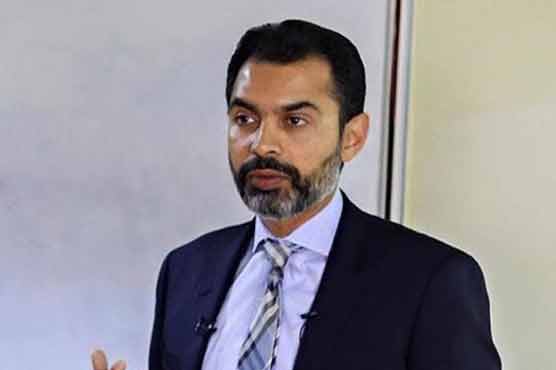KARACHI – The Governor State Bank of Pakistan, Dr. Reza Baqir has been appointed as the Chairman of the Council of Islamic Financial Services Board (IFSB), Malaysia for the year 2022.
His appointment was approved by the IFSB Council in its 39th meeting held on 9th December 2021 in Abu Dhabi, United Arab Emirates (UAE). He had been serving earlier as the Deputy Chairman of the IFSB Council for the year 2021.
Dr. Reza Baqir will also be serving as the Chairman of the IFSB General Assembly for the year 2022. The General Assembly is the representative body of all the members of the IFSB, namely Full Members, Associate Members and Observer Members.
Speaking on the occasion, Governor SBP said that he felt deeply honored to assume the Chairmanship of the Council of IFSB. He thanked his fellow Council members for placing their trust in him. He also expressed his sincere gratitude to Mr. Khaled Mohamed Balama Al Tameemi – Governor Central Bank of UAE for leading the Council for the year 2021 in an excellent manner.
The Governor SBP expressed that with the support of his fellow Council Members, he aspires to help IFSB realize its mandate and continue providing a high-quality intellectual guidance to global Islamic finance industry as envisaged in IFSB’s forward looking and ambitious Strategic Performance Plan 2022- 24. He also pledged to transform IFSB as one of the most progressive and robust standard setting body globally.
1/2 Governor SBP Dr. Reza Baqir @rezabaqir has been appointed as its Chairman by the Council of Islamic Financial Services Board, for 2022, in its 39th meeting in Abu Dhabi, UAE. The Council is the senior executive and policymaking body of IFSB. See PR: https://t.co/o86Qp3hJLI pic.twitter.com/z0QCb02QqC
— SBP (@StateBank_Pak) December 10, 2021
It is worth noting that IFSB Council is the senior executive and policymaking body of the IFSB. It consists of one representative each from full member of the IFSB, comprising senior executives from leading regulatory and supervisory authorities on Islamic finance. Currently, there are 187 members of the IFSB, which comprise 81 regulatory and supervisory authorities, 10 international inter-governmental organizations, and 96 market players (financial institutions, professional firms, industry associations and stock exchanges) operating in 57 jurisdictions. The mandate of the Council, inter alia, is to formulate and approve the policies and strategies of the IFSB, approve and make by-laws of the IFSB and adopt and approve for issuance prudential and supervisory standards. Established in 2003 at Kuala Lumpur, Malaysia as an international standard-setting organization, IFSB has so far issued 24 Standards, 7 Guidance Notes and 3 Technical Notes for the Islamic financial services industry covering wide-ranging areas such as risk management, capital adequacy, supervisory review process, transparency and disclosure, Shariah governance, corporate governance etc.
According to IFSB’s global Islamic financial services stability report 2021, the total worth of the Islamic Financial Services Industry (Islamic Banking, Islamic Capital Markets and Takaful) is estimated at USD 2.70 trillion in 2020.
To strengthen the regulatory and supervisory infrastructure for Islamic banking industry, the State Bank of Pakistan (SBP) has over the years adopted various IFSB prudential standards and guidelines after necessary customization in light of the prevailing local legal and regulatory environment. SBP being the founding and full member of IFSB has played an active role in achieving the objectives of the IFSB through representation on its various forums.
In Pakistan, currently there are five (5) full-fledged Islamic banks and seventeen (17) conventional banks operating with standalone Islamic banking branches offering a wide array of Shariah compliant financial solutions. As at June 2021, the market share of the Islamic banking industry assets and deposits in the overall banking sector stood at 17% and 18.7% respectively and the branch network of Islamic banking institutions comprises over 3583 branches and 1562 windows. Islamic banking industry in Pakistan has become systemically an important component of the banking industry registering remarkable growth over the last two decades.










